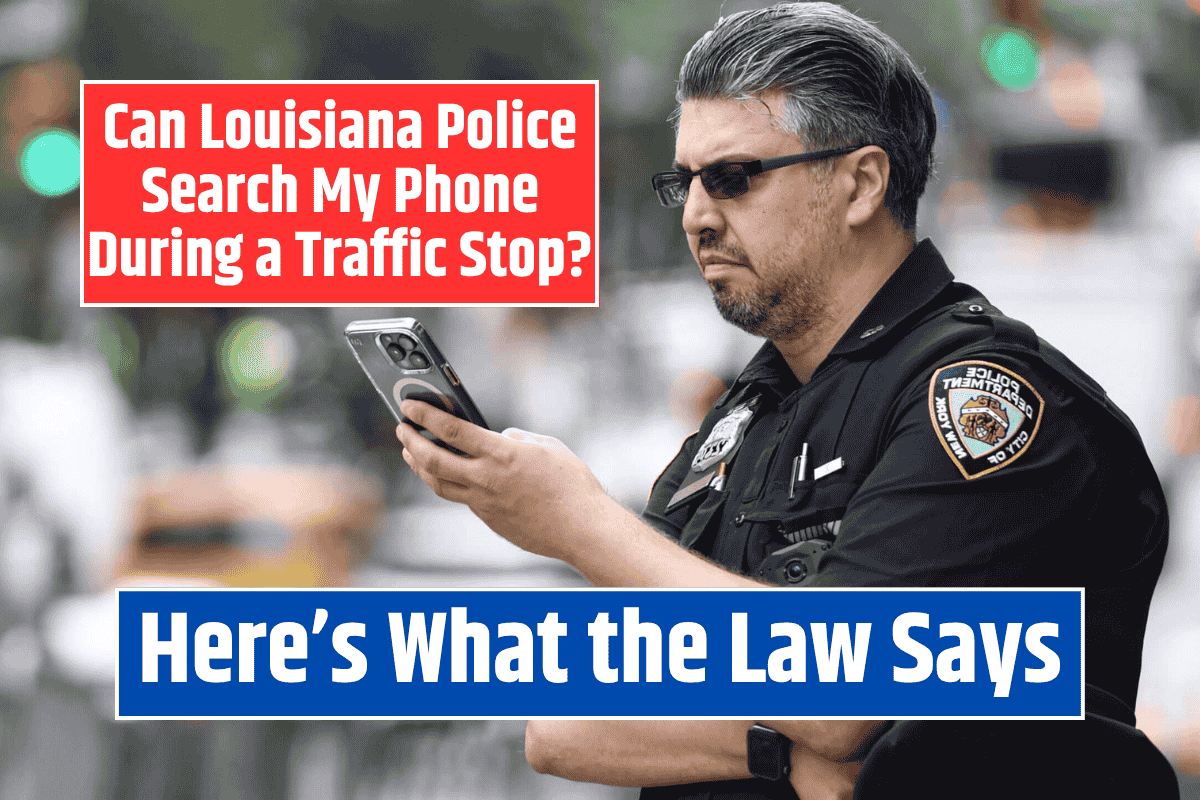Smartphones hold a lot of personal information — messages, photos, bank accounts, and even private notes. So, it’s normal to feel nervous if a police officer pulls you over and asks to look through your phone.
In Louisiana, can a police officer search your phone during a traffic stop? The short answer is no, not without your permission or a proper warrant. But let’s look at what the law actually says and what your rights are.
What Does the U.S. Constitution Say?
The Fourth Amendment to the U.S. Constitution protects you from unreasonable searches and seizures. This means police can’t search your body, your car, your home — or your phone — unless they have:
A warrant (a legal document from a judge)
Probable cause (a strong reason to believe a crime is happening)
Or your consent (your permission)
So, during a traffic stop in Louisiana, an officer cannot just take your phone and look through it unless you say yes — or they have a warrant.
What Did the Supreme Court Say About Phone Searches?
In 2014, the U.S. Supreme Court made a big decision in a case called Riley v. California. The court ruled that police need a warrant to search your phone — even if they arrest you.
This means that even if you get arrested during a traffic stop, the police still can’t go through your phone unless:
You give them permission
Or they get a warrant
Can Police Force You to Unlock Your Phone?
Another important point is how police can access your phone.
Right now, police cannot force you to unlock your phone using your fingerprint or face unless they have a specific warrant for that. Without a warrant, they can’t legally use your biometric data to get into your phone.
The One Big Exception: Consent
If you choose to give the police permission to look at your phone, then they don’t need a warrant. But here’s the key — you are not required to give consent.
You can politely say:
“I do not consent to a search of my phone.”
This is your legal right, and you won’t get into trouble just for saying no.
What Should You Do if It Happens?
If an officer asks to search your phone during a stop in Louisiana:
Stay calm and respectful
Ask if they have a warrant
If not, you can say you don’t consent
Do not unlock your phone or hand it over unless you choose to
Remember, anything on your phone — texts, photos, or emails — could be used against you, even if you’ve done nothing wrong.
In Louisiana, police cannot legally search your phone during a traffic stop unless you give them permission or they have a warrant. Thanks to the U.S. Constitution and Supreme Court rulings, your privacy is protected — including the personal data on your phone.
So, if you’re ever pulled over, know that you have the right to say no. Always be respectful, but stand firm on your rights.












